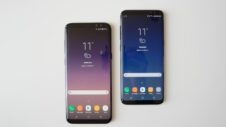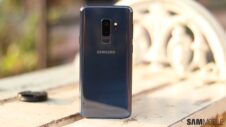There are many places worldwide that live by the “full retail price outright” model, where you pay full price for your phone (often more expensive than in the US and Canada) and walk away with a cheaper than cheap phone bill each month. North American consumers, with a growing preference for unlocked smartphones, however, are starting to wonder why they can’t find too many (if any) unlocked Galaxy S7 or Galaxy S7 edge smartphones at retail stores and websites.
For these individuals, the question comes down to this: why doesn’t Samsung get with the changing times? Why won’t Samsung assert itself as a leader in smartphones and push for the removal of carrier-branded and carrier-bloated smartphones so that customers benefit?
The answer to this question is simple: Samsung won’t push carriers aside because the carrier cooperation model has been all too successful for the Korean giant in North America. There are consequences for tech companies and manufacturers that don’t play by North American rules for North American customers, and the financial risk is too great for a wise company to take such a chance. Samsung’s carrier cooperation in North America is the key to its continental success.
Samsung cooperates with carriers
Remember the Galaxy Upgrade Program? Samsung opened its upgrade program in Korea, its native country, to allow customers to upgrade to a new Galaxy each year by way of paying Samsung on an installment plan.
Why has the Galaxy Upgrade Program yet to arrive in North America, for example, but already exists in Korea, Singapore, and the UK? Because of the carrier model. Samsung is one who believes in working with carriers, and this explains why you won’t see the Samsung Galaxy Upgrade Program but you will find Sprint announcing its Galaxy Forever Program and Verizon its Annual Upgrade Program.
If Samsung were so committed to “telling carriers where to go,” as some believe the Korean giant should do, don’t you think the company would have announced its own worldwide Galaxy Upgrade Program? I think so. The fact that it is allowing carriers in the US, for example, to provide their own Galaxy Upgrade programs for customers shows its commitment to carrier cooperation: if the carriers intend to launch their own upgrade programs, Samsung will work with carriers and comply instead of launching its own and going over carrier shoulders.
The Galaxy Upgrade Program/programs is but one example of Samsung’s carrier cooperation, but I point it out for a reason: it’s the carrier model that Samsung lives by in North America.
Samsung benefits from carrier cooperation
Samsung doesn’t work with carriers for the sake of making friends, shaking hands, and toasting at parties. The Korean giant cooperates with carriers when it comes to selling Galaxy smartphones because, to no one’s surprise, Samsung benefits from the carrier model.
Some North American tech-savvy enthusiasts would have you think that everyone’s jumped aboard the “unlocked, full-price” bandwagon, but that’s not true. 74% of US consumers still purchase their smartphones through carriers, an astounding trend that makes it hard for Chinese manufacturers such as Huawei, ZTE, and Alcatel to sell their smartphones. Additionally, these Chinese manufacturers are having a hard time selling their phones “especially when the main channel is not the carrier,” Kantar says.
Since most consumers still purchase their smartphones through carriers, a statistic from as early as just 9 months ago, and manufacturers struggle when there’s little advertising in the absence of carriers, Samsung’s decision for carrier cooperation is wise.
Samsung’s carrier cooperation benefits consumers as well
Some say that Samsung’s cooperation with carriers benefits Samsung and carriers, but I’d be guilty of negligence if I didn’t state that Samsung’s carrier cooperation benefits consumers as well. After all, the latest Galaxy upgrade programs mentioned above with Verizon and Sprint demonstrate the strength of such cooperation.
For customers who take advantage of these early upgrade programs, they’ll pay about $400-$500 on their Galaxy S7 or Galaxy S7 edge and upgrade next year to a Galaxy S8 or Galaxy S8 edge. They’ll get access to the latest, high-end Samsung Galaxy smartphone for half of the phone’s original price. This may not be the case everywhere, but installment plans and early upgrade programs (AT&T Next, T-Mobile’s JUMP and JUMP On Demand, etc.) are the new growing preference in North America, particularly within the US.
Aside from getting new smartphones each year for half the price, North American consumers also receive freebies such as T-Mobile customers who can get a year of free Netflix when they purchase the Galaxy S7 or Galaxy S7 edge, or lucky pre-order customers that received their new beauty earlier than expected. Sprint and Verizon had their own Buy One, Get One Free (BOGO) offers for the new “Galaxies” (as did AT&T and T-Mobile).
Verizon had the best Galaxy S7/Galaxy S7 edge promotional offer of any carrier in the US: the company offered its Galaxy S7 and Galaxy S7 edge pre-order customers the opportunity to choose between Gear VR and Samsung’s Gear S2 smartwatch (at the retail price of $349.99) for their free gift.
Customers have benefited from these deals because 1) they get free Samsung products, which is a win for diehard fans and new consumers alike, and 2) they fall more and more in love with carriers, who realize that these deals are the way to keep customers happy and loyal.
Conclusion
Some say that non-carrier-branded Samsung Galaxy smartphones should be far more common in North America in 2016 than they are on the continent, but I disagree. For Samsung, carrier cooperation has benefited not only the Korean giant, but carriers and customers – and it’s a business model that doesn’t look set to die anytime soon. While a growing number of customers are going off-contract in 2016, they can’t afford to go off-carrier. With carriers keeping consumers happy (take a look at Verizon, who posted a strong Q3 2015 quarter due to strong customer retention), the carrier model is here to stay.
North Americans who question consumer benefits in the carrier model don’t understand that the current carrier model doesn’t just benefit Samsung and carriers, but consumers as well: consumers get their smartphone of choice on affordable payment plans and special promotional offers, free products, and discounts, Samsung gets sales and profit, and carriers retain customers and gain new ones. All three parties benefit.
And wise companies like Samsung understand that if something isn’t broken (in this case, the carrier model), there’s no need to fix it.







